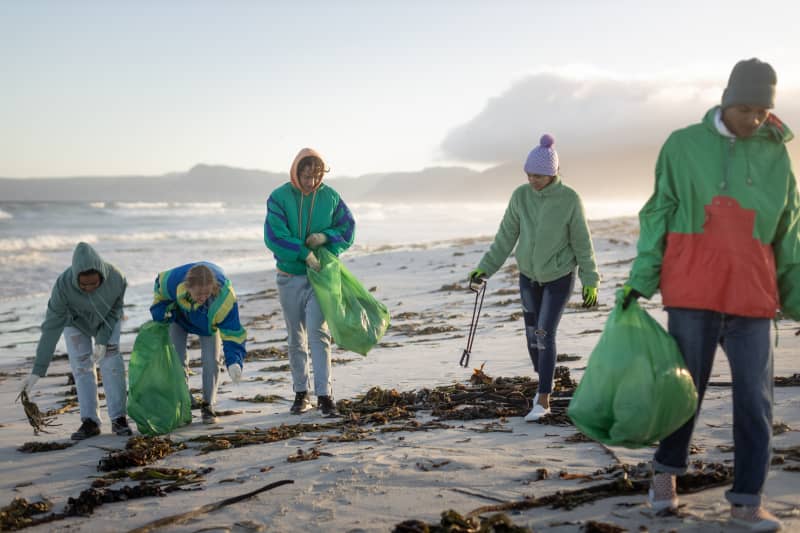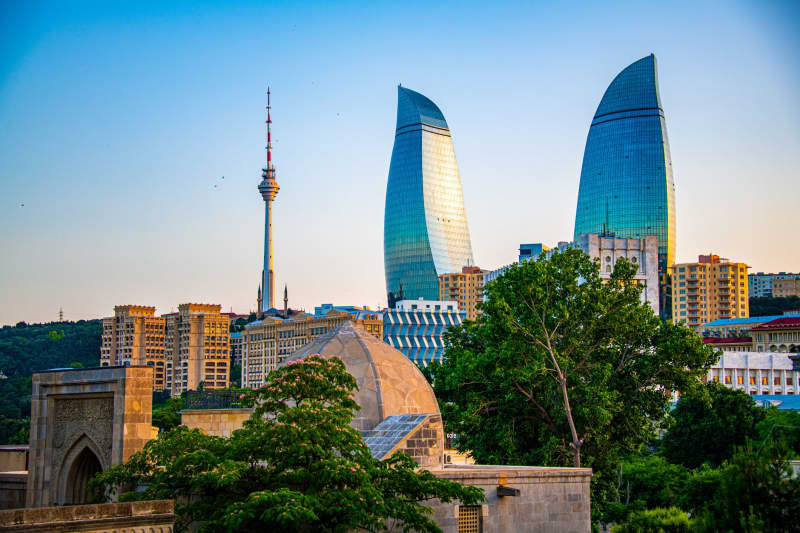Cambridge drives climate conversation at Festival of Education
“A planet of 8 billion problem solvers”: Cambridge drives climate conversation at Festival of Education
8 July 2024 | By Rosalind Moran

Wellington College in Berkshire
Wellington College in Berkshire
Cambridge University Press & Assessment recently attended the fourteenth annual Festival of Education, which took place on Thursday 4 and Friday 5 July at Wellington College in Berkshire, UK.
For the second year running, Cambridge sponsored the sustainability strand at the event. This meant we were able to further our goal of ensuring that climate action and sustainability are at the heart of conversations around education.
The Cambridge Sustainability Zone included stands representing various environment-related organisations and initiatives, including Let’s go zero, The Harmony Project, Reboot the Future, Forestry England, Field Studies Council, Chester Zoo, Black Geographers, the Natural History Museum, National Education Nature Parks, Reading University, and the Linnean Society.

The Cambridge Sustainability Zone
The Cambridge Sustainability Zone

Pencils and recyclable nature journals were given to visitors at the Sustainability Zone to encourage people to take five minutes at the Festival to sit and observe the environment around them
Pencils and recyclable nature journals were given to visitors at the Sustainability Zone to encourage people to take five minutes at the Festival to sit and observe the environment around them
With thousands of attendees from across the education sector – including teachers, policymakers, administrators, exam boards, charities, and advocacy groups – the Festival is an ideal place for reaching a wide range of people with real ability to create change.
As the Festival’s official sustainability partner, Cambridge also ran several sessions with climate themes.
These included:
· A panel session on ‘Building the knowledge and skills students need for a sustainable future’
· A comedian with an insightful perspective on how people with different skills can contribute to saving the planet
· A deep-dive into climate change, climate justice, and incorporating climate education into the classroom
· A panel session on ‘Working together to develop life skills for a greener living’
Tim Oates, Cambridge’s Group Director of Assessment Research and Development, also spoke at the Festival on moving past the ‘knowledge versus skills’ debate, and on what England can learn from education reform in New Zealand.
Building the knowledge and skills students need for a sustainable future

This panel discussion revolved around a key question: how can we build the knowledge and skills school students need to prepare them for the work and social needs of a sustainable future?
The panellists were Christine Özden, Cambridge’s Global Director Climate Education; Richard Dunne, Founder of the Harmony Project; Jo Anna Reed Johnson, School Director Climate and Sustainability Education at the University of Reading’s Institute of Education; and Patrick Gordon, Environmental and Sustainable Education Coordinator at Comberton Village College.
Their conversation was wide-reaching, exploring the challenges as well as the opportunities of incorporating climate and sustainability education into schools. The panellists also spoke about initiatives already in place and in development, and the session was noted throughout the Festival for its range of viewpoints on the topic.

From left to right: Richard Dunne, Christine Özden, Patrick Gordon, Ruth Carter (Stakeholder Relationships Manager at Cambridge's UK exam board, OCR), and Jo Anna Reed Johnson
From left to right: Richard Dunne, Christine Özden, Patrick Gordon, Ruth Carter (Stakeholder Relationships Manager at Cambridge's UK exam board, OCR), and Jo Anna Reed Johnson
Christine Özden, Cambridge’s Global Director Climate Education, said: “Climate education equips young people with the knowledge and skills to understand the complexities of climate change and encourages them to become active participants in tackling this global challenge.
“For this reason, it is essential that sustainability and climate education be embedded within curricula moving forward.”
This perspective is supported beyond Cambridge as well. Last week, the National Climate Education Action Plan Curriculum Mapping report – launched by Professor Andrew Charlton-Perez, University of Reading, and Professor Liz Bentley, chief executive of the Royal Meteorological Society – highlighted the many opportunities to bring quality climate and sustainability education into the curriculum.
Professor Charlton-Perez said: “Including climate and sustainability within the curriculum review will be vital to ensuring that the new government delivers long-lasting reform that can prepare young people for the good green jobs of the future.”

Combining humour with a meaningful message

In a midday session, award-winning stand-up comedian Stuart Goldsmith performed a comedy set about denial, anxiety, and adaptation in the face of the climate crisis. The set both directly communicated useful ideas and stood out for its symbolic value, showing how skills such as being able to tell a good story and connect with audiences – like through comedy – can also be valuable in tacking the climate crisis, as they can help to change hearts and minds.
Goldsmith spoke about his own experiences of climate anxiety and about how he is taking small steps to implement positive changes in his own life and encourage change within his industry. He also argued that open conversations about the climate crisis and human behaviours are vital, as only by collaborating and discussing problems openly can we move from hopelessness into action.
“We are a planet of 8 billion problem solvers,” he emphasised.
Goldsmith also made an excellent point that each person can find applications for their unique skills and talents that can also result in positive climate action. Such action will involve and need everyone from people involved in climate science research, to people writing children’s books with ecological themes; from disability advocates ensuring vulnerable people are not left behind as the world changes; to comedians and other performing artists, whose communication skills can inspire positive action.
Climate change and climate justice

Thursday’s final session was also a standout with its focus on climate change, climate justice, and how educators can help young people feel engaged and equipped with good knowledge and skills in a changing world.

The presenters spoke about how climate change’s impacts vary around the world, frequently impacting poorer communities more severely as these communities might lack the resources to adapt infrastructure or prepare comprehensively for extreme weather. In this sense, they explained, climate change as experienced by different people is like experiencing the “same storm, but from different boats”.
From here, they also emphasised the importance of intersectional values in tackling the climate crisis, to ensure nobody is left behind by solutions made to fit a majority of people and communities.
“Climate anxiety can be a good springboard for inspiring you to do something – but it can also make people feel very pessimistic,” explained Jodie Bailey-Ho, Department of Education Youth Focal Point and Founder of Teach the Teacher.
“That's why it’s important that the education system is helping young people deal with climate anxiety, or not to develop climate anxiety in the first place.
“The thing about the climate crisis is that you can be overwhelmed by the complexity of the problem or fall in love with the creativity of the solutions. So educators need to help students move from anxiety, to an informed, solutions-focused mindset.”
An educator in the audience commented that climate change actually offers a good opportunity from bringing systems thinking and carbon literacy into schools – “because nothing exists in isolation, everything is connected.
“Climate change is a fantastic opportunity to get young people thinking like systems thinkers, seeing how one issues can cross through all areas.”
The session concluded with the reflection that a deeper understanding of nature – and of humans as being a part of nature – is currently missing from school curricula. It’s time for that to change.
Bailey-Ho also spoke on Friday alongside Mahnoor Kamran, Climate Action Plan Coordinator of Students Organising for Sustainability UK, as part of a panel discussion on how we can all live greener and reduce our impact on society and the world. The session involved Bailey-Ho and Kamran discussing techniques and ideas to help students and wider communities, at school and at home, make greener personal choices.
Social change can begin with individuals – and living more sustainably is a powerful and valuable challenge for our times.

Learn more about how Cambridge supports climate education
More stories

Cambridge drives climate conversation at Festival of Education
Cambridge University Press & Assessment recently attended the fourteenth annual Festival of Education, which took place on Thursday 4 and Friday 5 July at Wellington College in Berkshire, UK.





